Money or no money, crisis persists

We are told that taka is available, and then it's not there anymore. The same can be seen in the case of the US dollar as well. According to the government, there is no shortage of money. The central bank has enough taka, too. And any talk of a dollar crisis is made out to seem absolutely absurd.
However, this plainly contradicts what is being reported in the media. The Rampal Power Station's production had to be shut down within 27 days of its inception, thanks to depletion of imported coal reserves. Due to a shortage of greenbacks, we could not open LCs and import coal from Indonesia. Once the crisis is over, LCs will be opened, coal will be brought in and production will resume. However, during this unproductive period, the power plant will still get its share of "capacity charges." Now the question is, if there is no dollar crisis, then why could we not import coal? Why did we end up in the same capacity charge trap? Did we learn nothing from having to pay the hefty capacity charges attached to the rental and quick rental initiatives?
If there was enough money in the banks, why did Bangladesh Bank lend to Islami Bank at an interest rate of nine percent?
The government is taking out a USD 4.5 billion loan from the IMF, which is roughly equivalent to Tk 48,000 crore. The loan comes with a lot of conditions, and the government is being forced to let go of its long-standing policy of publishing an inflated reserve. Our experts have long been saying that we cannot include the "already spent" USD 8.1 billion in the reserve calculation, but the government paid them no heed. But now, it has forfeited to the IMF's conditions. The government has even accepted some of the conditions that could harm citizens, such as reducing the amount of subsidies. Accordingly, the price of electricity has already been increased. The state minister for power and energy has announced, henceforth, that the price will be "adjusted" each month. It needs to be said that, in the government's dictionary, "adjustment" merely means increasing the price.
However, in principle, adjustment means that local market prices will have to be adjusted according to the ups and downs in the international market. Thanks to the Russia-Ukraine war, the price of oil crossed USD 90 per barrel. But now that it has decreased to USD 79 to 85 per barrel, the price of oil in the local market does not reflect this.

About four to five crore people in Bangladesh are destitute. And though the government's ministers and leaders acknowledge this fact, they are still not refraining from taking actions that worsen the sufferings of the poor, thanks in part to the conditions set by the IMF. Now they are inching towards increasing gas prices. Eventually, oil, water and fertiliser prices will also increase, and electricity prices will be increased again, too. Consequently, the prices of all kinds of essentials such as rice, lentils, vegetables, meat and fish will increase. Household fuel prices will definitely rise, and rent will rise alongside them. Transportation, agricultural and educational costs will skyrocket to follow.
But the income of these four to five crore people will not increase, and nor will that of the lower-middle, middle and upper-middle classes. Instead, they are likely to get downgraded to a lower class. As ever, the poor will get poorer and the rich will get richer.
A recent study by Oxfam reveals, among the world's newly created USD 42 trillion wealth, 67 percent is held by the richest one percent. There is no such study of Bangladesh's situation, but it is quite likely that our truth may be even more heartbreaking than the global picture.
The government keeps on reiterating that everything was going fine until the Russia-Ukraine war, which caused the current crisis. But how accurate is this?
Undoubtedly, the Russia-Ukraine war has created a global crisis, the heat of which is being felt by Bangladesh, too. However, this war is not the only factor behind Bangladesh's economic crisis. It may not even be "one of the reasons," either.
The main reason behind the current national crisis is mismanagement and the adaptation of incorrect policies. Hence, even if a war hadn't broken out in Europe, doom was imminent for Bangladesh. For example, the current government started its tenure with Tk 22,000 crore of defaulted loans in 2009. Now, this has increased to Tk 1,34,000 crore. This would amount to Tk 3,00,000 to 4,00,000 crore if we include lawsuits and abandonments. This has nothing to do with the ongoing war. Rather, it portrays the government's lax attitude towards the misdeeds of loan defaulters.
The cost and timeline of almost every project, including mega-projects, have been extended, and each project has been marred by corruption. Rampant money laundering persists, and yet the government doesn't take any action, nor does it acknowledge it as a problem. Only now are we seeing news of people who have laundered money, amassed wealth, and bought properties in Dubai-London-New York-Begum Para coming to light. The government keeps mum regarding these revelations, which is noteworthy.
The power sector's corruption and anomalies, and the burden of high capacity charges, caused the economy to stumble. Now, all the large power plants will come into operation, and along with them, we will also get more expensive, imported electricity. Here, too, we will be entrapped by capacity charges. Diesel-based 1000MW electricity production may be on hold, but we will have more supply against the demand – at least on paper. Meanwhile, massive capacity charges will persist.
The risk of a global recession is looming high upon us. And Bangladesh will not be spared. The IMF loan may give the government temporary respite, but the common people will have to endure more suffering. With the upcoming general election, political unrest is likely to break out. Locals and foreigners will have their eyes glued to events pertaining to politics.
Meanwhile, who will address and alleviate the everyday tribulations of the common people?
Golam Mortoza is the editor of The Daily Star Bangla.

 For all latest news, follow The Daily Star's Google News channel.
For all latest news, follow The Daily Star's Google News channel. 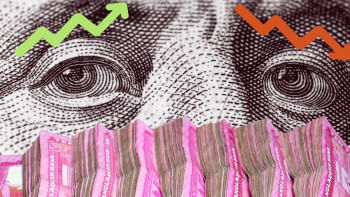
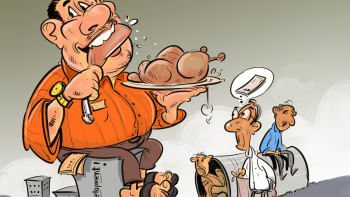



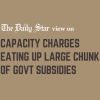
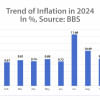
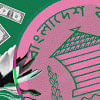



Comments